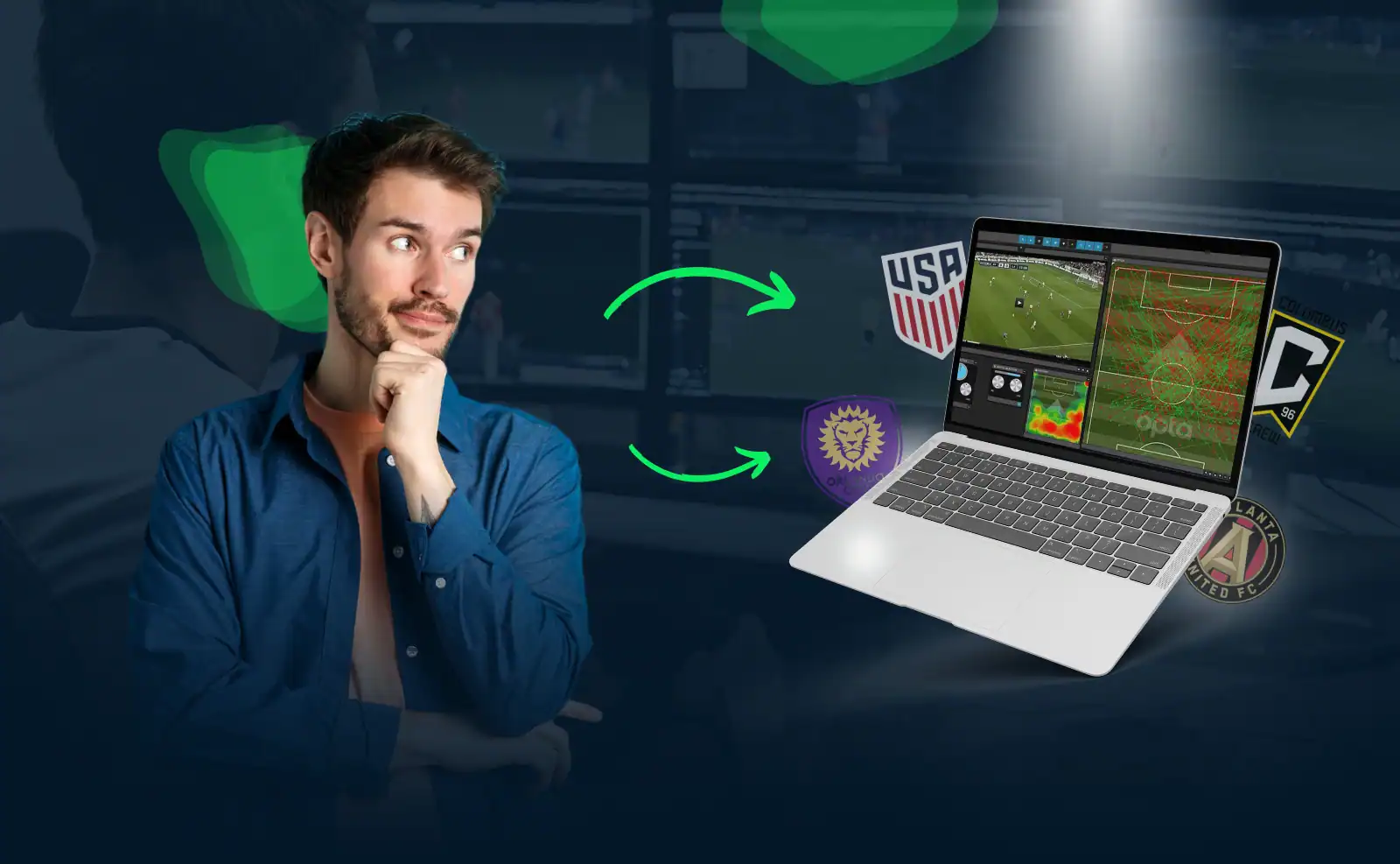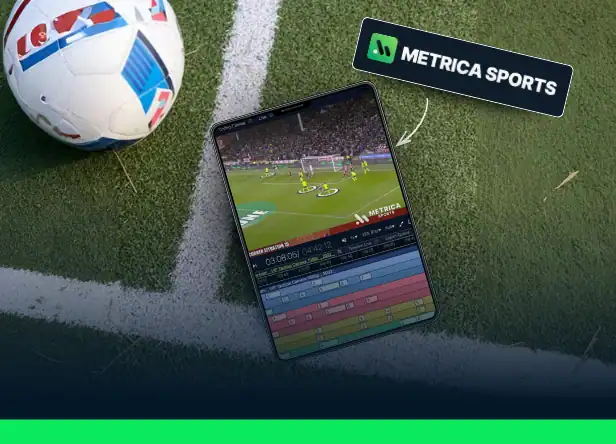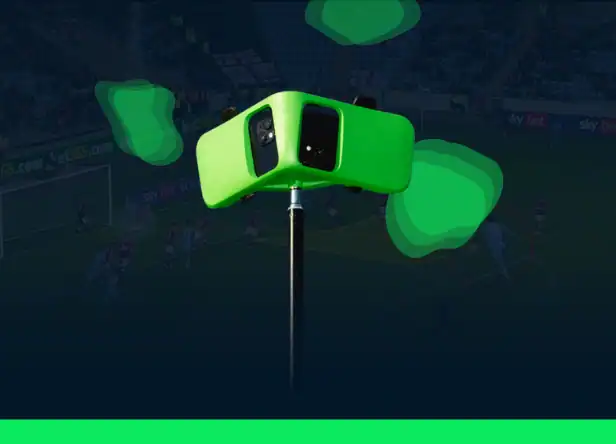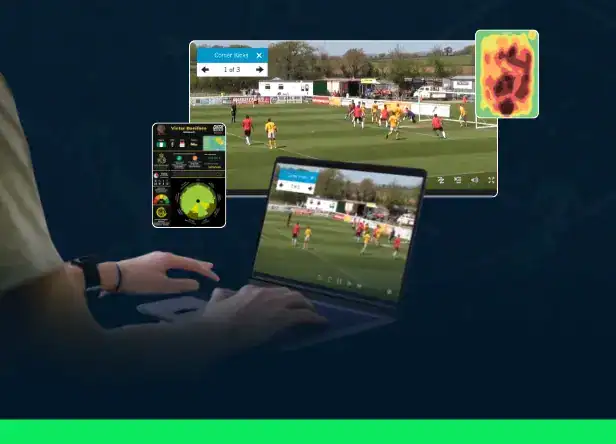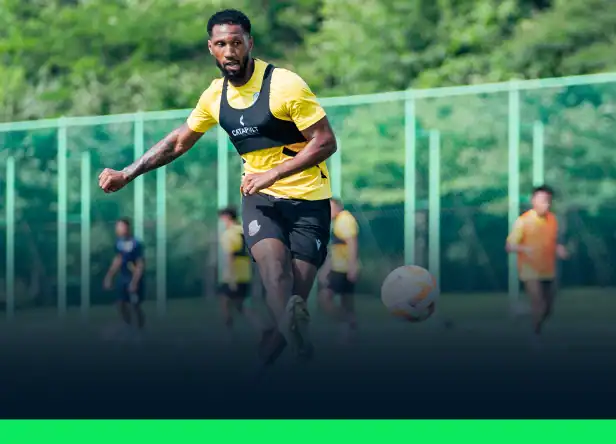In 2025, the use of video analysis in soccer has shifted from a novel experiment to a core pillar of modern team strategy. Elite clubs, national squads, and even grassroots academies rely on data-driven insights to outsmart the opposition, spot talent, and refine player development. In 2025, making a career switch into a technical, analytical role like video analysis is not only possible – it’s a highly promising path for passionate soccer fans and industry professionals alike.
This guide breaks down what it takes to become a soccer video analyst and how you can strategically navigate the career transition.
Is a Career Change into Soccer Video Analysis Possible?
Absolutely. But first, one must know what is the exact role of a video analyst. The role of a video analyst involves much more than simply watching match footage. Analysts capture, tag, classify, and break down video material from training sessions and competitive fixtures. They identify tactical trends, strengths, and weaknesses – not just within their own team, but across potential opponents – compiling targeted video digests and statistically supported reports for coaching staff.
Video analysis also powers scouting workflows, where analysts highlight promising youth prospects or undervalued players by backing intuition with video evidence and measurable data.
As seen in the video above, the use of video analysis is rapidly growing in professional soccer, including in clubs like Notts County FC in England.
Soccer’s continual professionalisation means video analysis is evolving fast. As AI-powered tools, optical-tracking cameras, and automated tagging systems become standard, the analyst’s role becomes increasingly influential, requiring a blend of technical proficiency, tactical knowledge, and strong communication.
How to Become a Soccer Video Analyst
Understanding the Video Analyst Role
Video analysts collaborate closely with coaches, scouts, fitness teams, and players. They provide actionable insights that influence training emphasis, match tactics, player recruitment, and recovery management.
Typical responsibilities include:
- Setting up recording systems and managing match/training footage
- Using professional software to tag events such as passes, shots, and defensive actions
- Analyzing play style patterns, formations, and opposition strategies
- Producing video edits combining clips with voice-over or text annotations
- Creating statistical dashboards and performance reports
- Presenting findings at technical meetings
- Supporting scouting decisions with video profiles
This multifaceted role demands both technical skill and deep soccer understanding.
Who Can Transition into Video Analysis?
Scenario 1: A Soccer Enthusiast Looking to Enter Video Analysis
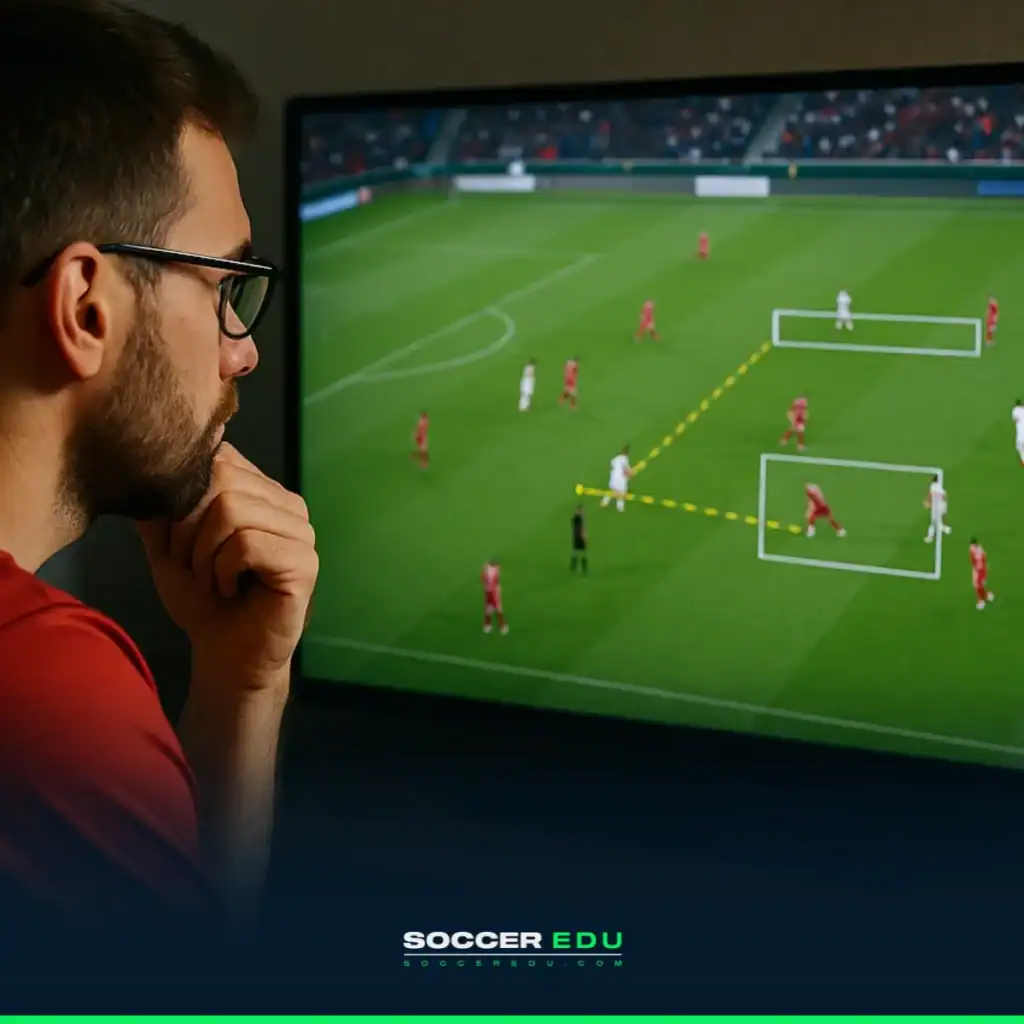
If you love watching and analysing the game but have little prior professional involvement, your pathway starts with foundational education:
- Enroll in formal video analysis courses
- Gain hands-on experience with leading software (Hudl Sportscode, Nacsport, Metrica Sports)
- Develop tactical knowledge: formations, pressing triggers, build-up sequences, set-piece roles
- Build a demo portfolio by working on publicly available matches or youth games
- Engage with the analyst community via online platforms and webinars
Your passion is your greatest asset, so focus on turning it into technical competence.
Scenario 2: A Soccer Professional (Coach or Scout) Looking to Pivot
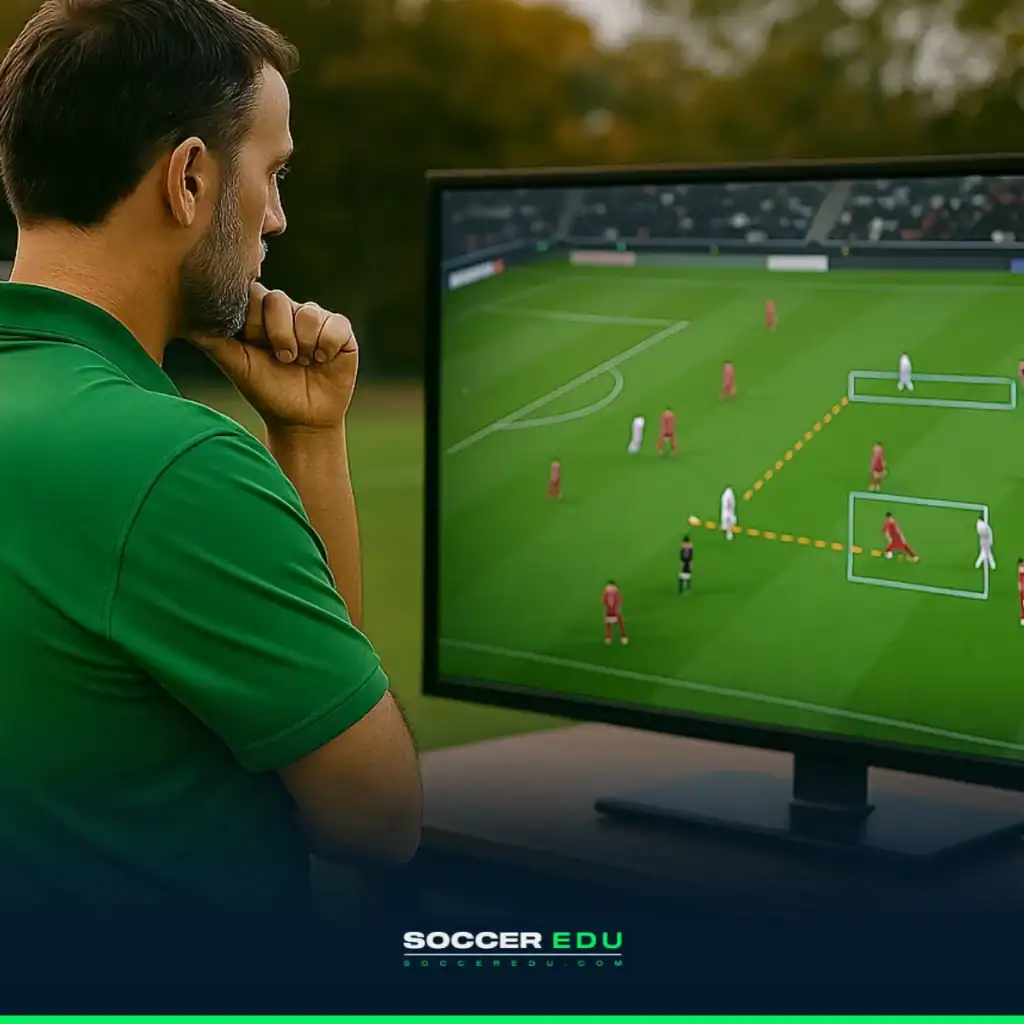
If you are already involved as a coach, scout, or in another soccer capacity, learning video analysis will complement your expertise:
- Integrate analytical workflows into your daily routine
- Use video data to back your tactical or recruitment insights
- Transition gradually by combining analysis with your current role
Former players and coaches often bring valuable intuition that, combined with video skills, propels them into key technical department roles.
Where to Start Your Transition into Video Analysis
Transitioning into video analysis takes time and effort. A step-by-step guide on how to get started is as follows:
- Complete a Comprehensive Video Analysis Course
Free and paid courses are available online — many offering interactive modules on software use, game analysis, and communication skills.
- Master Industry-Standard Tools
Hudl Sportscode, Nacsport, and Metrica Sports are widely used across Europe’s top clubs. Trial versions offer 2-3 months of access — use these to practice tagging, creating edits, and building reports.
- Deepen Tactical Awareness
Back technical skill with soccer intelligence. Study team formations, transitions between phases, pressing triggers, and opposition patterns. Resources like Tactical Pad and SoccerEDU enhance this tactical fluency.
- Network Actively
Attend webinars hosted by professional analysts, join specialist Discord or Slack communities, and participate in online events. These connections can lead to internships, mentorships, or job opportunities.
- Prepare Communication and Presentation Skills
Translate dense analytics into clear, concise video edits and presentations that resonate with coaches and players—storytelling is key.
What Career Growth Can You Expect as a Video Analyst?
The role of the video analyst is becoming indispensable across all levels of soccer. According to Thierry Marszalek, part of the French National Team’s technical staff, it’s a role that has become essential in modern soccer.
Today, we can say that it’s a profession that has become unavoidable. (Thierry Marszalek, Technical Staff, French National Team)
Here’s what to expect as you grow in the role:
1. Opportunities at All Levels
From youth academies and amateur clubs to pro teams, video analysis has applications across all tiers. You can choose an environment that matches your experience and career goals.
2. Tech-Driven Growth
The field evolves alongside technological advancements — from AI-powered editing tools to smart cameras. Staying updated ensures your skills remain relevant and in demand.
3. Global Possibilities
This career path opens international doors, allowing you to work with teams abroad and experience different soccer cultures while contributing to the global rise of performance analytics.
4. Strategic Influence
Video analysts are increasingly involved in decision-making — from match tactics to player recruitment. This can lead to senior positions within technical and scouting departments.
Recommended Free Resources to Help You Transition into Soccer Video Analysis
To get started on the right track, here are 3 free resources to help you launch your new career:
1. SoccerEDU Articles and Training
Training articles on analyst-scout collaborations, player evaluation case studies, and career insights suitable for beginners.
These are perfect for beginners starting their journey.
2. Video Analysis Software Trials
Access free trials of professional-grade software used by clubs like BVB Dortmund, FC Porto, and Liverpool with SoccerEDU:
- 2-month trial of Hudl Sportscode
- 3-month trial of NacSport
- 2-month trial of Metrica Sports
These tools are essential to gain hands-on experience and build your portfolio.
3. YouTube
Follow analysts from professional clubs breaking down real matches, demonstrating editing workflows, and sharing tips on career progression.
Final Thoughts: Building a Career on Passion and Data
Transitioning to a soccer video analyst role in 2025 demands dedication, technical know-how, and soccer savvy. But it is a highly rewarding career that bridges the love of the game with cutting-edge data analysis.
Focus on:
- Completing solid training
- Developing both technical and tactical skills
- Building a professional network
- Demonstrating your ability to communicate insights effectively
With technology’s relentless advance and the worldwide growth of soccer analysis, your timing couldn’t be better. Emerging analysts today will be tomorrow’s key decision-makers, supporting teams to reach new heights on and off the pitch.
Next Steps to Consider:
- Download trial software and work on tagging footage regularly
- Join soccer analysis communities online
- Volunteer or intern with local clubs’ analysis teams
- Shadow experienced analysts where possible
The sooner you commit, the more fluent you become in the language of video-driven soccer insights, paving your way to a successful career.

